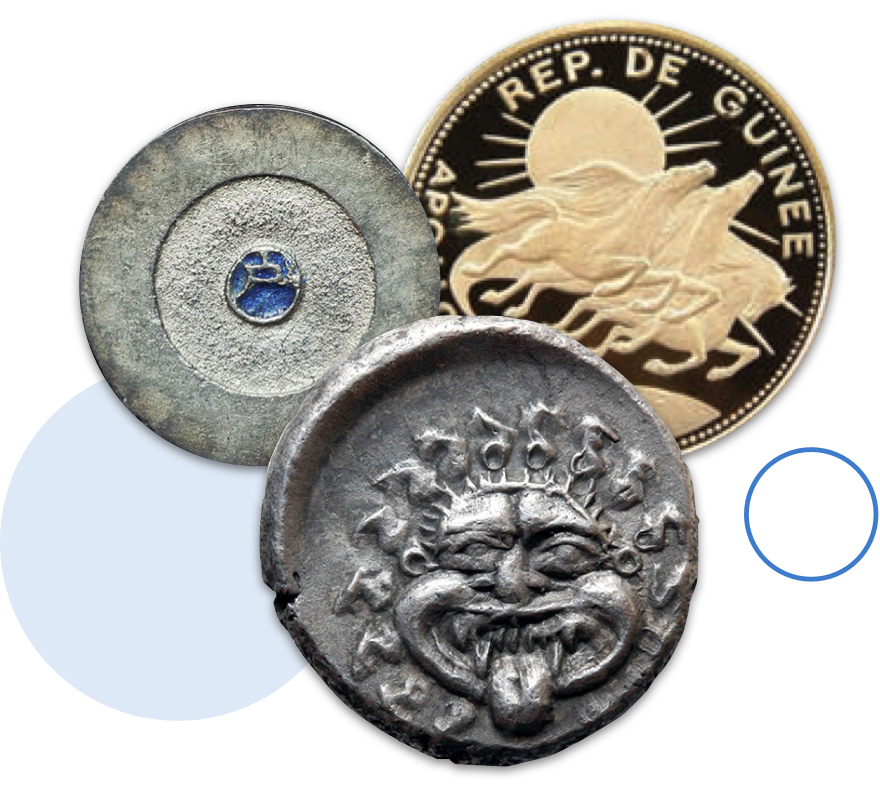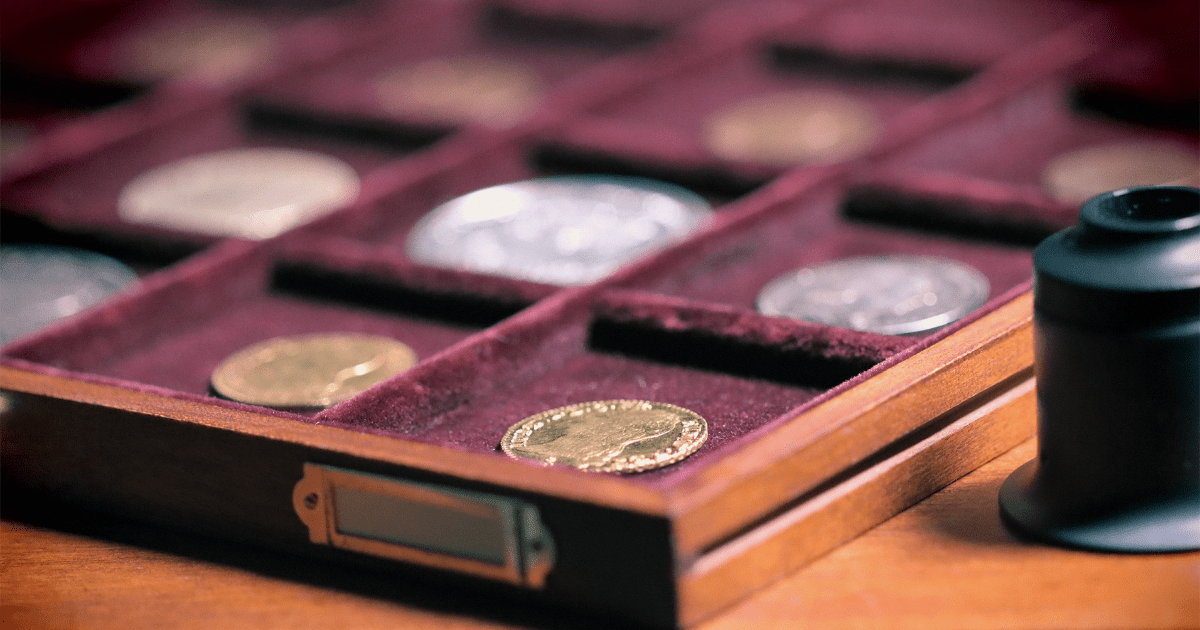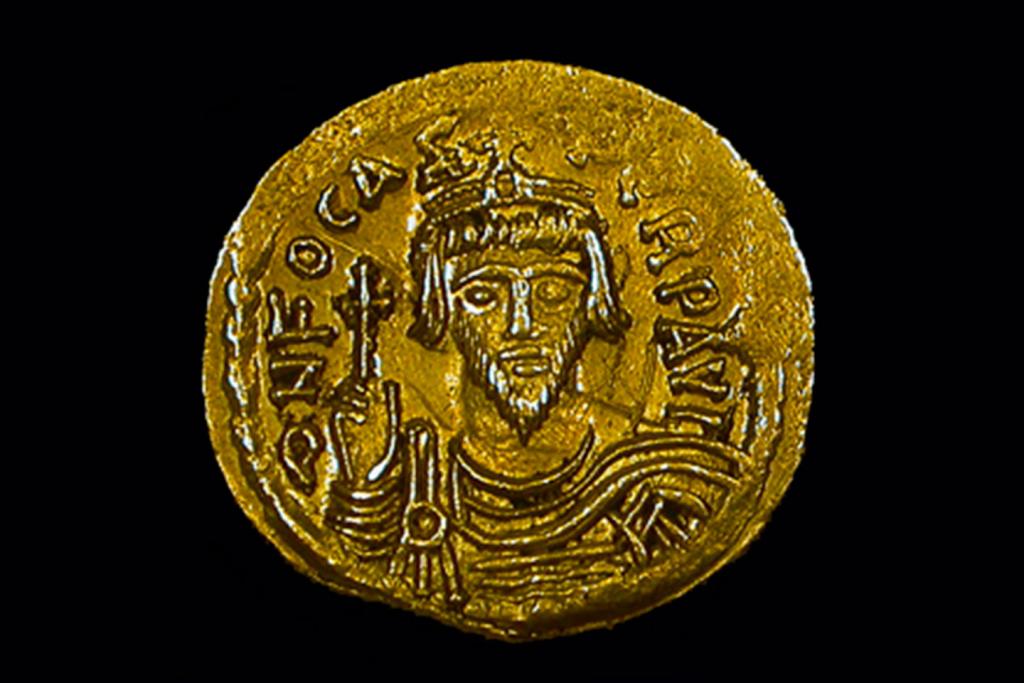Handy Suggestions To Picking Coin Expo And Coin News
Handy Suggestions To Picking Coin Expo And Coin News
Blog Article
What Can I Do To Search For Regional And Global Associations In Numismatics?
This is a structured method to conduct this type of study. This is a systematic method to conduct such research. JSTOR and other academic databases and repositories, can give you access to research papers and conference proceedings.
Define Research Focus: Specify your research objectives. You may be interested in the past of society for numismatics, their activities as well as regional collaborations and conferences or on particular numismatic topics that these organizations discuss. Clarify what you are looking for to help guide your search.
Search Strategy: Include keywords like "numismatic associations", "global numismatics" or "regional societies for numismatics," when appropriate. Additionally, you may include the names of organisations or regions. Utilize advanced filters to filter search results by document type, date (such newsletters or conference papers from associations) and geographical scope.
Data Collection: Get information about the purpose as well as the history, membership publications, and other activities of global and regional numismatic associations. Find information about past or upcoming conference, research collaborations and workshops. Access databases that include information on association leaders, members, and contact details.
Analyze: Examine your data to gain a greater understanding of the regional and global the role of numismatic associations and their impact. Analyze how these associations help to advance the field of numismatics, encourage international collaborations, and disseminate research through publications and conferences.
Cross-Reference: Ensure the accuracy of your information by comparing it to other databases and sources. Compare the activities and initiatives of various organizations to get an overall view of the global and regional trends in the field of numismatics.
Documentation: Document your findings systematically, citing sources and highlighting the methodologies employed. Keep track of details on the databases used, keywords used to search, and the importance of each source to your research needs.
Keep yourself updated: Numismatics groups are constantly evolving. These include new publications, collaborative projects, and conferences. For the most up-to-date information on international and regional numismatics keep an eye on association websites as well as databases.
By following these steps, you'll be able to effectively use databases to study the numismatics of global and regional associations. This approach enables a thorough analysis of the structure of organizations, scholarly activities, and collaborative efforts that shape the field of numismatics on a global and regional scale. Have a look at the recommended bullion coins tips for site advice including rand, currency forum, nickel, coin mintmark, banknote dealer, gold, coin release, forint, banknote design, coin society and more.
What Is The Best Way To Use Numismatics To Research Exhibitions And Show Events In An Online Database?
In order to research the subject of numismatics with respect to exhibitions and show events and exhibitions, databases are employed. They store information regarding numismatic shows, exhibitions or conferences. The following is a step-by-step guide for conducting this kind of study Searching for databases: Choose databases that are specialized in shows and exhibitions that are numismatic. Websites of major numismatic associations such as the American Numismatic Association, online platforms that showcase the world's numismatic exhibits, or museums archives are examples.
Define Research Focus: Specify your research objectives. Do you have a desire to exploring upcoming and past numismatic exhibitions and conferences that focus on numismatics, regional coin shows, thematic exhibitions, or educational events? Clarify the focus of your lookup.
Search Strategy: Make use of keywords such as "numismatic exhibitions," "coin exhibitions," "numismatic events," and include specific event names, places, or thematic focuses if applicable. Sort results by advanced search features. This includes filtering results by dates, types of events (such as exhibitions and conferences) and geographical regions.
Data Collection: Access information on upcoming and past shows and events that are numismatic. Collect information such as event dates and times, locations, organizers or themes, featured collections or exhibitor participation, and publications or catalogs. Look for databases that allow you to take virtual tours of exhibits as well as other digital materials.
Examine the data to determine the educational goals themes, trends, and goals of numismatic shows and exhibitions. Assess how shows and exhibitions help to increase knowledge of the numismatic field, encourage scholarly exchange and showcase significant collections.
Cross-Referencing: Verify the validity of your study by comparing data from different databases including event listings, official websites. This lets you conduct a thorough research and get a full overview of global numismatic events.
Documentation. Record your findings from research by citing sources and noting any methodologies that you used. Keep track of information like databases you've used as well as your search terms and the relevance of these to your research questions.
Stay Up-to-date: Numismatic events are always changing with new exhibits, shows, and conferences regularly scheduled. For the most up-to-date information on forthcoming events, look out for updates from numismatic groups such as event organizers, specific databases.
By following these steps, you can effectively utilize databases to study the numismatics of shows and exhibitions. This will allow you to examine the range of advantages, and contributions to scholarly research that numismatic shows worldwide make. View the top banknote holder for more tips including currency collecting, coin catalog, dirham, mint, currency exchange, uncirculated, coin display, platinum, uncirculated coins, proof coins and more.
How Do I Utilize A Database To Research Numismatics With Regards To Legal Experts?
For a structured method of conducting this research: A structured approach is provided to assist you in conducting this research. Legal research platforms like Westlaw as well as LexisNexis are some examples, along with the numismatic journals, publications of numismatic societies, and numismatic law journals.
Define Research Focus: Specify your research objectives. Do you want to know more about the legal rules that govern coinage currencies, and numismatic disputes? Are you looking for regulations on coin production circulation, production, as well as legal interpretations of the authenticity of numismatics and ownership? Find out what you're seeking to know in order to guide your research.
Search strategy: include legal terms like "numismatic dispute"," "legal aspects of coinage," and "numismatic issues" in your keyword search. If appropriate, include specific legal concepts like authenticity, ownership or counterfeiting. Utilize advanced search filters to narrow results by the date, location (national and international) and legal topics in relation to the numismatics.
Data Collection: Search for legal precedents (case law) as well as legislative texts (legislation) as well as scholarly publications related to the field of numismatics. Gather details such as case reports, legal analyses as well as interpretations of statutes pertinent to the case and historical perspectives regarding legal issues in numismatics.
Analysis: Analyze data to better understand issues and legal implications of numismatics. Analyze how legal frameworks affect the numismatic market as well as collection management and authentication processes. Compare the legal approaches and their interpretations in different jurisdictions.
Cross-Referencing Validate your findings by cross-referencing across databases, legal journals and court records. This is an excellent method to make sure you are doing precise and thorough research. Additionally, you will gain a thorough understanding of the legal scene in numismatics.
Documentation: Documentation is important. Use sources to cite and record the method you employed. Note the database's names, search terms and the relevance of each resource to the research question.
Stay updated. Legal interpretations of numismatic numismatics and laws evolve in response to changes in legislation or court decisions. Stay current by monitoring updates from legal databases and numismatic law journals, and updates from numismatic societies on legal developments.
Use these guidelines to utilize databases effectively to research the numismatics of legal experts. This approach allows for an in-depth examination of the legal structures and interpretations of scholarly scholars which intersect with the field numismatics. Check out the top mint info for blog recommendations including uncirculated coins, banknote album, coin edge, coin society, banknote dealer, precious metals, banknote expo, currency forum, banknote storage, obsolete currency and more.
How Can I Use Databases To Conduct Research On Numismatics, Especially In Regards To Publications And Journals.
The study of numismatics in relation to journals and publications requires using databases that specialize in publications that are numismatic, scholarly articles or historical publications, as well as academic journals. This is a methodical approach for conducting such research:Database selection: Select databases that are specialized in publications that are numismatic journal, scholarly journals, as well as academic articles. Online databases such as JSTOR and Google Scholar are good examples. You can also search for journals that are numismatic, like those published by the American Numismatic Society, or library catalogs with numismatic collections.
Define Research Focus: Specify your research objectives. You might be interested in numismatics history and specific coins or even periods. Find out the purpose of your research.
Search Strategy: Use keywords like "numismatics," numismatic publications," or "numismatic journal" and, if applicable include specific types of coins or topics (such medieval coins, ancient, modern) in your search. Advanced search filters results by the type of publication, the dates (articles or books) as well as author affiliation and publication type.
Information on numismatic journals and publications. Data collection: Access data on journals and publications numismatic. Search databases for full-text articles and digital archives of old numismatic magazines.
Analysis: Analyze and interpret the data in order to gain a better understanding of the contributions of scholars, and the research trends. Assess the research methodologies and the meanings of coinage symbolism and iconography, the numismatic standards for cataloging and the evolution of the field of numismatics over time.
Cross-Referencing: Verify your findings by cross-referencing information across multiple databases, numismatic journal, library catalogs and institutional repository. This ensures completeness and accuracy in your research. This also gives insight into the vastness of numismatic materials.
Documentation - Document your research findings in a structured manner by citing sources and mentioning the methodologies you have used. Keep track of information such as the databases that you have accessed, your search terms, and their connection to your research questions.
Stay Up-to-date: Numismatic research and publications are constantly evolving with the latest discoveries and interpretations. You can stay up to date with the latest numismatic research by following periodic updates from academic journals the numismatic associations and databases.
Following these steps, you'll be able to effectively utilize databases to study the numismatics of publications and journals. This approach allows for thorough investigation of scholarly works and research methods offered by the literature on numismatics. Additionally, it provides historical insights. Take a look at the top rated sell on coin artist for site tips including silver, banknote authenticity, denomination, banknote show, nickel, coin album, coin grading, rupee, krona, coin news and more.
How Can I Verify And Update My Data In A Database That Is Used For Numismatics Research?
Researching numismatics with regards to updates and verification of data is a matter of using databases that offer up-to-date and reliable information on the characteristics of coins, their historical contexts, market prices and trends for collectors. The following is a structure to conduct such study. Selecting a Database: Select databases that are believed to be reliable and credible with regard to their numismatic information. This can include auctions of numismatic databases (such as Heritage Auctions and Stack's Bowers Galleries), coin catalogs on the internet (such Numista or CoinArchives) as well as databases of numismatic societies and reputable dealer sites.
Define Research Focus: Specify your research objectives. Are you interested in confirming the specifications of coins (such as weight, metal composition) or historical information (minting periods, mint marks), market values (prices realized in auctions), or collecting trends (popular series or rarity rankings)? Make sure you know what you are looking for to guide your lookup.
Search strategy: Use keywords to find your topic. For example, "numismatic verification," “coin catalog updates," “market value updates," in addition to specific types of coins and historical periods. Utilize the search feature to filter your results by source, date, and coin attributes.
Data Collection: Get access to reliable sources of numismatic and historical information. Collect details like description of coins, images, historical background, market prices, and information about provenance through auction results or catalog entries.
Verification Process: Verify the reliability and accuracy of data by cross-referencing data across multiple databases, using information from different sources (auction houses, catalogs, numismatic societies). Check the specifications of coins against standard references (like guidebooks on grading coins or official mint records) to ensure the accuracy.
Updates - Keep tabs on databases frequently to ensure that numismatic statistics are kept up to date. Stay up-to-date with new discoveries in coins and market updates, as well as historical attribution changes, and gathering trends. Subscribe to alerts or newsletters from numismatic sites for real-time information.
Analyse the verified data for insights into coin attributes and historical significance. Trends in the market. The preferences of collectors. Consider the impact of newly released information regarding your numismatic collection and research areas.
Documentation - Write down your findings, including the sources you consulted and mentioning the methods you used to verify your findings. Be aware of any changes to market values as well as any changes to information.
The following steps can aid you in making use of databases for research into numismatics. If you follow this method you will be able to access up-to-date and reliable data that is essential to making educated decisions regarding coin collecting, investment, and research within the dynamic field of numismatics. Check out the top rated banknote printing blog for more info including banknote catalog, nickel, proof coins, currency grading, coin mold, silver, authenticity, coin production, currency appraisal, czech coins and more.